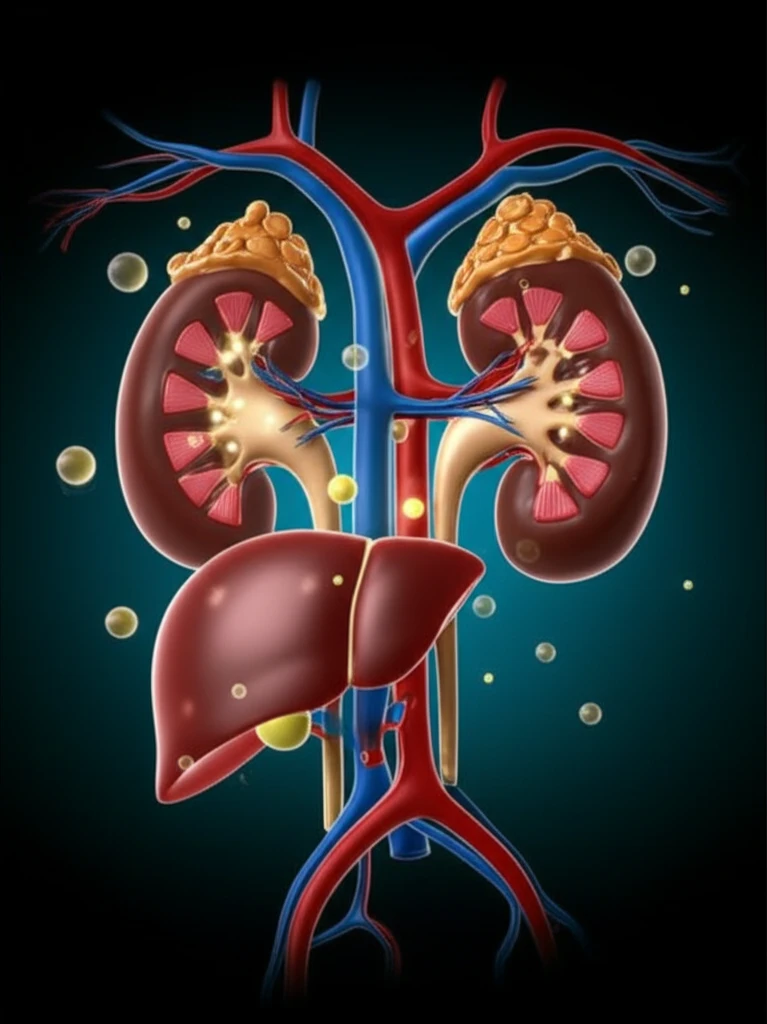
Decoding Bilirubin: What Its Link to Albumin Reveals About Kidney Health
"Uncover the surprising connection between bilirubin, albumin, and kidney disorders like nephrotic syndrome, and what it means for your health."
Bilirubin, often associated with liver health, is increasingly recognized for its broader role in the body, particularly its antioxidant properties. But what happens when kidney function is compromised? Research suggests a connection between bilirubin levels and kidney disorders, specifically how bilirubin interacts with albumin, a protein crucial for maintaining fluid balance in the blood. This connection is especially relevant in conditions like nephrotic syndrome (NS), where protein loss in urine disrupts this balance.
Nephrotic syndrome (NS) is characterized by high levels of protein in the urine, low albumin levels in the blood, swelling, and high cholesterol. Researchers have observed that patients with NS often have lower levels of bilirubin. This leads to the question: is there a direct relationship between kidney function, albumin, and bilirubin?
This article dives into a study analyzing the correlation between bilirubin and albumin in patients with nephrotic syndrome, chronic nephritis, and postoperative gastroparesis syndrome. By understanding this relationship, we can gain insights into potential therapeutic strategies for managing kidney disorders and mitigating oxidative stress.
The Bilirubin-Albumin Connection: What the Research Shows

The study compared bilirubin levels with albumin levels, urine protein, and urinary microalbumin/creatinine ratios in three groups: patients with nephrotic syndrome (NS), chronic nephritis (CN), and postoperative gastroparesis syndrome (PGS). The goal was to determine if there was a correlation between bilirubin levels and these factors, particularly in the context of kidney disease.
- Significant differences in bilirubin, albumin, urinary microalbumin/creatinine, and urine protein levels were observed between the NS and CN groups.
- In the NS group, bilirubin levels showed a positive correlation with albumin (meaning when albumin increased, bilirubin also tended to increase) and a negative correlation with urinary microalbumin/creatinine and urine protein (meaning when these increased, bilirubin tended to decrease).
- The chronic nephritis group showed similar correlations to the NS group, highlighting a potential link between bilirubin, albumin, and kidney function.
The Implications: What This Means for Kidney Disease Treatment
This research highlights the complex interplay between bilirubin, albumin, and kidney function. The study suggests a potential link between low bilirubin levels and protein loss in urine in nephrotic syndrome patients. While more research is needed, these findings open doors to explore new therapeutic strategies.
One potential avenue is investigating therapies that target oxidative stress in kidney disease. Given bilirubin's antioxidant properties, maintaining or even increasing bilirubin levels (within safe limits) could potentially protect the kidneys from damage and improve outcomes for patients with nephrotic syndrome.
It's important to note that this research is a starting point. Further studies are needed to fully understand the mechanisms involved and to determine the safety and efficacy of any potential interventions. However, this study underscores the importance of considering bilirubin levels in the context of kidney health and opens exciting possibilities for future research and treatment approaches.
